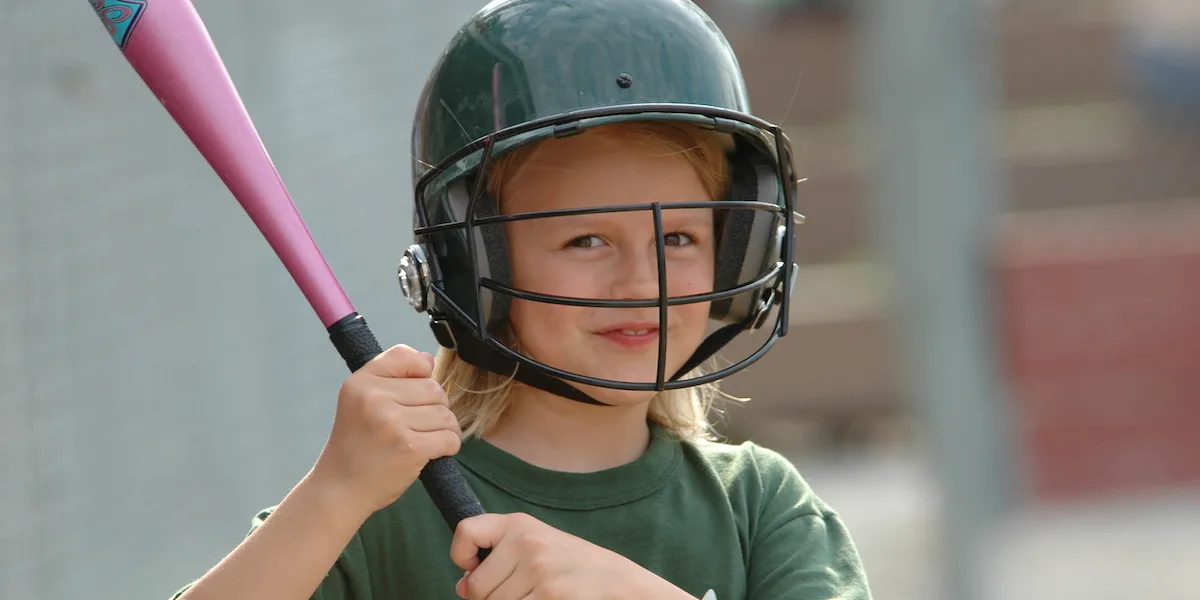Youth Sports Parenting - 7 Ways to Support Young Athletes
Connie Harrington Last updated: September 14, 2022


Table of Contents
Most parents know that participating in sports benefits kids. In fact, a Harvard poll found that 76% of parents encourage their middle and high-school-age kids to play sports. But moms & dads often wonder if they are doing all they can to support their young athletes.
What does effective youth sports parenting look like?
Here are seven tips to follow to bring out the best in your young athlete. You can use these tips for any child, at any level, in any sport.
#1: Let Your Kids Follow Their Passions
Often, parents know the value of sports first-hand. You may have played a sport while growing up or follow a professional sport or team. It's natural to want your child to follow in your footsteps. And it's common for parents to want to rekindle their love a sport through coaching their own kids on how to play.
But it's important to remember that your kids may have different interests and talents. Even if you excelled at a sport, your kids may not possess the same skills. And you should never force your kids into a direction that doesn't feel right to them.
Your best bet is to expose your young athletes to several sports. They'll quickly learn which are the best fits for them. Most likely, your kids will choose to focus on one or two athletic pursuits.
Their choices may not be what you'd prefer. But keep an open mind. You may find you have a new favorite sport -- one that you'd never have expected.
Most pro athletes valued their experience in other sports growing up. Learn more in 5 Things Young Athletes Can Learn from Pro Athletes.
#2: Model Positive Behaviors
Even at the beginning stages, youth sports can feel very competitive. Every parent wants their kids to do well. And emotions can run high.
Your kids will look to you for guidance on how to navigate the world of sport. What do you want them to see?
Focus on the positives and show your kids how to respect coaches, other players, and parents. Find something good in every sports experience, even those tough losses. Teach your kids to learn from mistakes instead of getting discouraged by them. Know and follow your league or club's code of conduct. Volunteer when you can to show kids the value of helping others.
All of these behaviors will help your kids develop a positive perspective on the sport. They can carry that with them during their playing years and into the rest of their lives.
#3: Encourage Your Kids to Respect Coaches
Often, youth sports coaches contribute long hours to helping develop young athletes. They may sacrifice their own personal and family time for their players. And they can bring a wealth of expert knowledge to help every kid grow.
Still, every coach is human. They may make mistakes too.
From day one, you should encourage your kids to respect their coaches. Teach them to pay close attention to their coach's instructions. And tell them to honor their coach's decisions, even if they don't like them. Help your kids request support or ask questions to coaches.

Build a good relationship with your children's coaches. Your kids will likely follow your lead.
#4: Teach Your Kids to Be Good Sports
Being part of a team can be valuable for any child. They'll learn how to work with others towards a goal. And they'll learn how to get along with kids who have different backgrounds and talents.
The game is less fun for everyone when negativity or tension surfaces. Teach your kids to avoid bad behaviors, like putting down other athletes or teams. Tell them to be gracious in victory or defeat. Remind them that encouraging words can make a huge difference in someone's day.

Learning to be a key member of a team is one of the biggest benefits of playing youth sports.
Always emphasize good sportsmanship and teamwork over winning and individual accomplishments. Remind your kids that positive relationships and attitudes are what matters most.
#5: Give Your Kids Nutritious Food Options
Proper nutrition is essential for athletic performance. A sports season is an excellent time to instill healthy eating practices that your kids can follow year-round.
First, you should know that kids who are physically active need to stay hydrated. Water is the #1 drink choice. Most dietitians counsel athletes to minimize the consumption of sports drinks. And kids should avoid energy drinks entirely.
Also, make sure your child eats balanced meals and snacks. In general, most young athletes should have three meals and three snacks daily. Make sure each meal includes lean protein, healthy fats, complex carbs, fruits, and vegetables. Each snack should consist of lean protein, healthy fats, and complex carbs.
Your child's nutritional needs can vary significantly--especially during times of rapid growth. Serious athletes may want to consult a sports nutritionist for personalized guidance.
#6: Help Your Kids Manage Their Emotions
Sports can bring out a wide range of emotions in every kid. In a single season, a child can experience the exhilaration of win and disappointing losses. Some kids can feel anxiety about their performance or anger over perceived mistakes. All these very normal feelings can increase if your child enters a competitive team or program.
As a parent, you should encourage your kids to talk openly about their feelings. Be a good listening ear. Validate their feelings and help them redirect negative emotions.
Sometimes, kids may need help to avoid expressing emotions in negative ways during a sports event. Simple techniques--like learning to count to five or take three deep breaths--can make a big difference. Mind-body practices like these can help any young athlete stay focused and present during practices and games.
#7: Be Proud of Your Kids -- No Matter the Outcome
Ultimately, your kids' youth sports experience should be positive and fun. It's great if a kid is on a travel team or plays high school sports. Yes, college-level play is a dream for many. But not everyone (better yet, almost no one) is going to reach those levels. And your kids need to know that you'll support them--no matter what.
It sounds simple. But it's easy to forget to tell your kids that you have their back. Make a point of saying something positive about every practice and game. Praise your kids for things they do off the field or court, like helping carry equipment or bringing water to a teammate.
Remember that youth sports can help kids develop healthy habits that can last a lifetime. Keep that long-term truth in mind instead of focusing on wins, losses, and statistics.
7 Smart Ideas for Positive Youth Sports Parenting
Parents are a child's first and best teachers. That's true in all areas of life--including youth sports.
Often, parents can focus on ambitious outcomes, like helping their kid make a select team or gain a scholarship. Those are worthy aspirations, but they should never cloud the true value of youth sports participation. By playing a sport, kids can learn the importance of regular exercise and teamwork. They can learn how to set goals and work steadily towards them. And they can learn to navigate emotional ups and downs.
In every phase of their sports career, your kids need you to be a good role model. You should teach them to respect coaches and be good sports. And you can give them advice on how nutrition and mind-body control are essential for sports success.
Whether your child is a casual player or an elite competitor, he or she needs your support. Listen to your kids, model positive behaviors, and remind them that they're loved no matter what. You'll bring joy to your kids' sporting experiences and give them something to cherish for the rest of their lives.